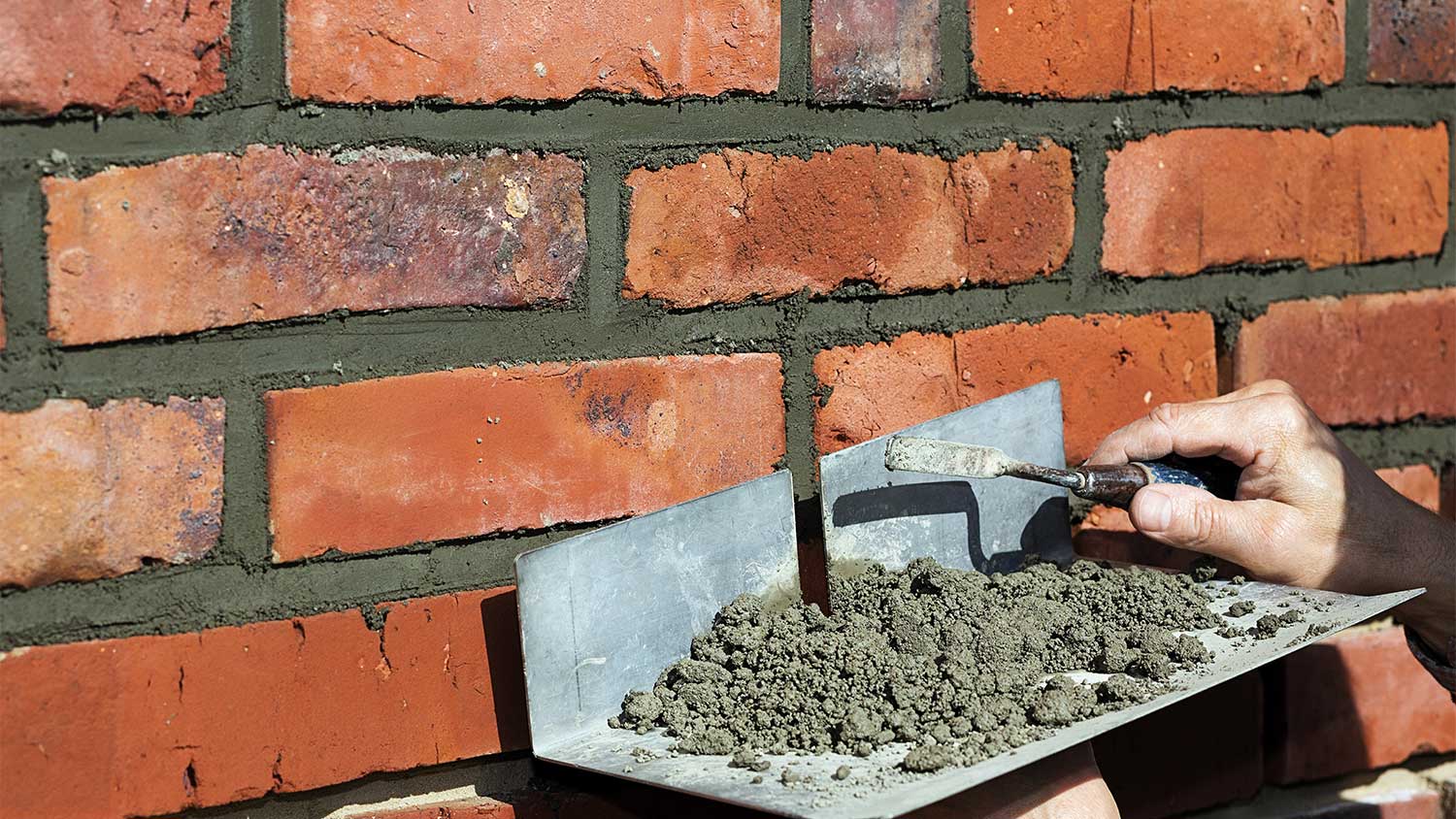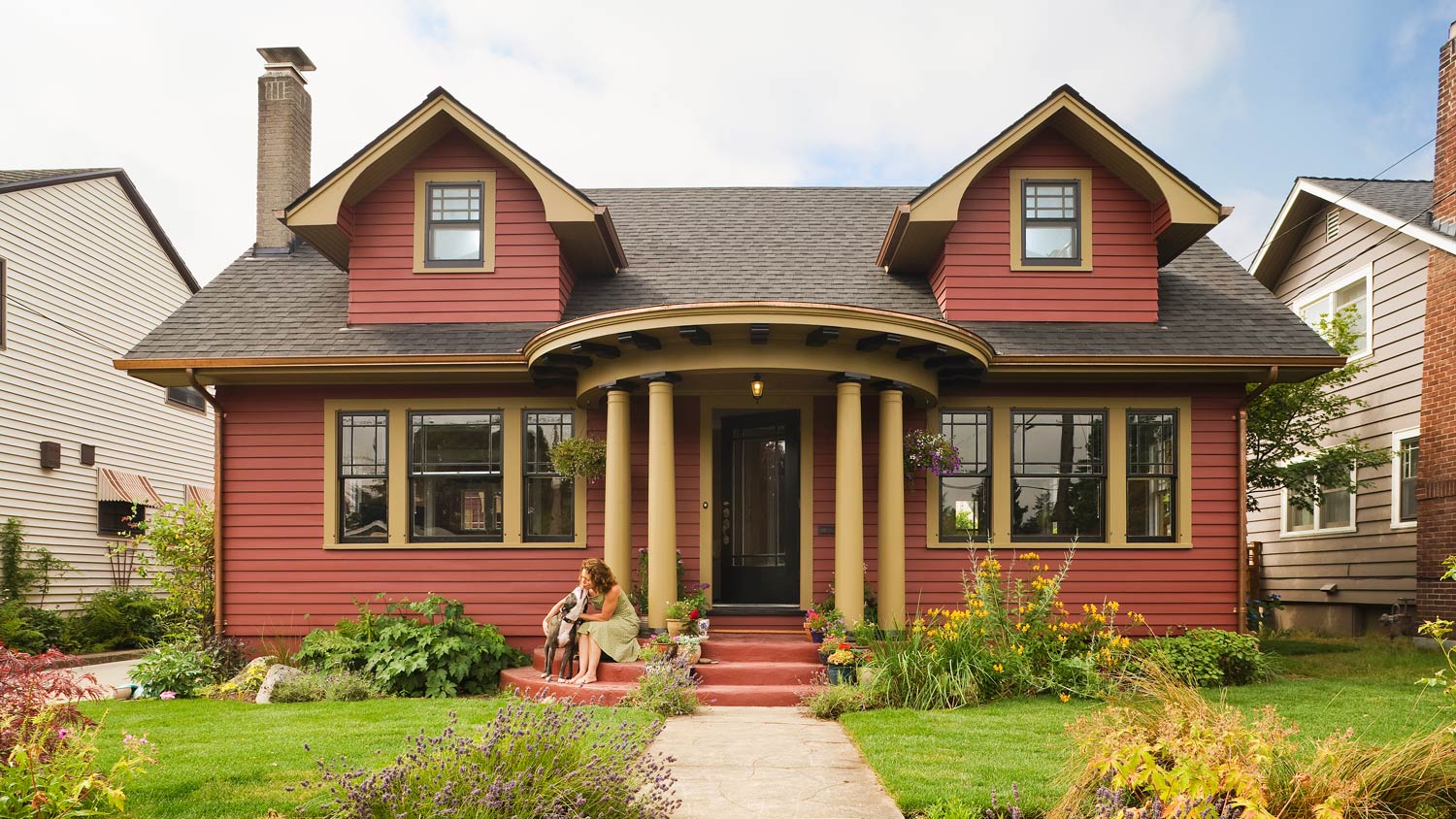How Much Does Brick Wall Repair Cost? [2025 Data]
The cost to repair a brick wall averages $1,659, typically ranging between $778 and $2,598 depending on the level of repair and current brick condition.


Whether it covers the whole exterior of your home or appears only on an accent wall within, brick offers a classic, elegant look and comes with the guarantee of longevity. With proper maintenance and care, brick can last 100 or more years. To repair a brick wall and preserve its look and life, expect to pay between $778 and $2,598. The final cost is determined by whether you’re dealing with a few cracks or a full restoration.
How Much Does It Cost to Repair a Brick Wall per Square Foot?
Masons typically charge about $20 to $40 per square foot, depending on the extent of the damage, the quality of the brick, and the structure’s integrity. Some masons have a minimum fee, which is usually between $200 to $400.
| Wall Size Per Square Foot | Average Cost |
|---|---|
| 50 | $1,000–$2,000 |
| 100 | $2,000–$4,000 |
| 200 | $4,000–$8,000 |
| 300 | $6,000–$12,000 |
Brick Wall Repair Cost Factors

The cost of repairing a brick wall depends on many factors, primarily the condition of the existing brick and the level of repair needed. Depending on the cost of the repair and the type of project, you may want to consider the cost of a new brick wall instead.
Brick Type
Different areas of your home may use different kinds of brick. For instance, the brick used on your fireplace might be made of appropriately named fire bricks, while an exterior wall of your home is likely made of brick veneer. Generally speaking, the more expensive the brick, the more repairs will cost per square foot. If your project requires a lot of bricks, your mason may be able to secure a bulk order discount. Or, if you're looking for more aesthetic versatility with a renovation project, consider the perks of EIFS vs brick (exterior insulation and finish systems).
Extent of Damage
The amount of brick that needs to be repaired or replaced will factor into the final cost. A minor repair (like a small crack) will cost more than a more severe one (like water damage). Even if you only have a small area that needs to be repaired, have it addressed immediately; minor problems with brick walls can turn into big problems very quickly.
Wall Height
Repairs higher than 10 feet off the ground will cost more than those below due to the specialized tools and experience needed. Expect a 10% to 25% increase for hard-to-reach repairs where the mason may require the use of scaffolding.
Disposal of Materials
For larger repair projects that require removing parts of a brick wall, you may need to pay for the cost of a dumpster rental or disposal fees. Bricks cannot be tossed in a normal residential trash bin and most local governments require you to dispose of bricks at certified recycling centers.
Permits
You may be required to apply for a permit depending on the size of your brick repair project. Most local governments won’t require a permit if you’re repairing or replacing components of existing work with similar materials (meaning replacing a brick in a brick wall likely won’t need a permit). Other more involved projects that require special modifications or exceed a certain dollar amount may require a permit. It’s a good idea to talk to your licensed masonry contractor about permitting needs before starting the project.
Project Cost by Type of Repair
The level of repair is the largest cost factor for this type of job. The cost of removing and replacing a few bricks is much different from fully restoring a brick wall.
| Repair Type | Average Cost |
|---|---|
| Cracks | $500–$1,000 |
| Mortar | $300–$500+ |
| Spalling | $900–$20,000 |
| Bowing | $7,500–$40,000 |
| Full Restoration | $5,000–$20,000 |
Cracks
Expect to pay $500 or less to repair some cracks in 10 or fewer bricks. If several areas are cracked, the cost will likely run between $750 and $1,000.
Mortar Repair

To remove old, cracked mortar and fill in the spots with fresh mortar, your mason will employ either tuckpointing or repointing. Tuckpointing is when you remove a part of the aging mortar, fill in the joints with new mortar that is colored the same—or close—to the color of the brick, and then apply putty in a contrasting color in the center of the joint. Repointing is replacing the old mortar with new mortar. Mortar repair costs $10 to $20 per square foot; for a 20-square-foot wall, expect to spend $300 to $500.
Spalling Repair
Spalling refers to the appearance brick gets when it has been exposed to years of colder, harsher climates, poor installation, non-breathable sealants, or high-pressure water.
To fix spalling bricks, a mason will need to remove and replace them. This can cost $900 to $1,200 on average (if there are only a few sections to repair) but can run as high as $20,000 (rebuilding large sections of a wall).
Bowing Brick Wall Repair
If your brick wall is bowing for whatever reason—like water damage or foundation issues—you should address it immediately, as it can lead to structural failure. These repairs can be costly, ranging from $7,500 to $40,000 for 100 square feet. You may have to factor in additional costs to address the source of the problem, such as:
Tree root removal: If tree roots are pushing up against your foundation, causing your wall to bow, you’ll need to get them removed, which will cost $400 to $1,200.
Soil pressure: Clogged gutters can lead to a buildup in soil pressure; cleaning your gutters will cost you $120 to $225.
Structural issues: You’ll need to consult with a local structural engineer about bowing resulting from a large movement, such as a settling foundation or disruption to other supportive elements.
Full Restoration
A full restoration project, typically done on historic homes, includes removing spalling bricks, fixing cracks, and replacing other bricks, if necessary. Given the extent of this work, expect to pay $5,000 to $20,000 or more for the total project.
Repairing a Brick Wall Yourself vs. Hiring a Pro
Brick is one of the most durable materials out there, and when cared for and repaired correctly, it can last a lifetime (and often much longer). Because masonry requires years of apprenticeship and training—and often includes structural elements—brick repair is best left to a masonry professional. A mason will bring the expertise necessary to repair your brick wall. When hiring a mason, make sure they are licensed, insured, and bonded.
It is possible to repair a brick wall yourself to save some money. Your main expense for minor brick wall repairs will be the mortar, which will cost about $30 to cover 75 square feet, as well as the tools and masonry materials necessary to complete the job. Keep in mind that working with mortar is a complex job, requiring a lot of skill to mix, apply, and cure the material. Mistakes during the DIY process could result in a brittle structure that damages surrounding bricks.
How Angi Gets Its Cost Data
Home is the most important place on earth, which is why Angi has helped more than 150 million homeowners transform their houses into homes they adore. To help homeowners with their next project, Angi provides readers with the most accurate cost data and upholds strict editorial standards. We’ve surveyed thousands of real Angi customers about their project costs to develop the pricing data you see, so you can make the best decisions for you and your home. We pair this data with research from reputable sources, including the U.S. Bureau of Labor Statistics, academic journals, market studies, and interviews with industry experts—all to ensure our prices reflect real-world projects.
Want to help us improve our cost data? Send us a recent project quote to costquotes@angi.com. Quotes and personal information will not be shared publicly.
Frequently Asked Questions
Minor hairline cracks in mortar are normal over time. This is a natural occurrence as bricks settle. You should worry about cracks in brick if you see vertical cracks that widen as they move up, stair-step cracks, L-shaped cracks, or deep horizontal cracks. These are all more serious signs of foundation damage.
A well-made brick wall can last up to 100 years if maintained properly, which includes regularly repairing the mortar every 30 to 50 years. If your brick wall is under 30 years old and is already showing signs of repair, it may be due to poor brickwork and installation. Extreme weather conditions can also accelerate a brick wall’s life span (especially the exterior of a house).
While all brick generally needs washing prior to repairs, it's especially important to get rid of old mortar stains. How do you clean mortar off bricks? Typically a pro will clean off any dust and debris with a wire brush before repairing the brick. If your existing brick has more than surface dirt, your pro may recommend a more thorough pressure washing prior to starting. It’s a good idea to check with your contractor to review any pre-project work that needs to be done.
If you've decided you'd like to skip the cost of restoring a brick exterior wall after considering whether you should repair or replace brick on your house, you can consider installing fiber cement siding over brick for a cost of $2 to $6 per square foot. When done properly, cement siding over brick offers a durable, low-maintenance option that can actually reduce your home's energy costs. It's also attractive. However, improper installation or installation over heavily compromised brick can cause water damage.















